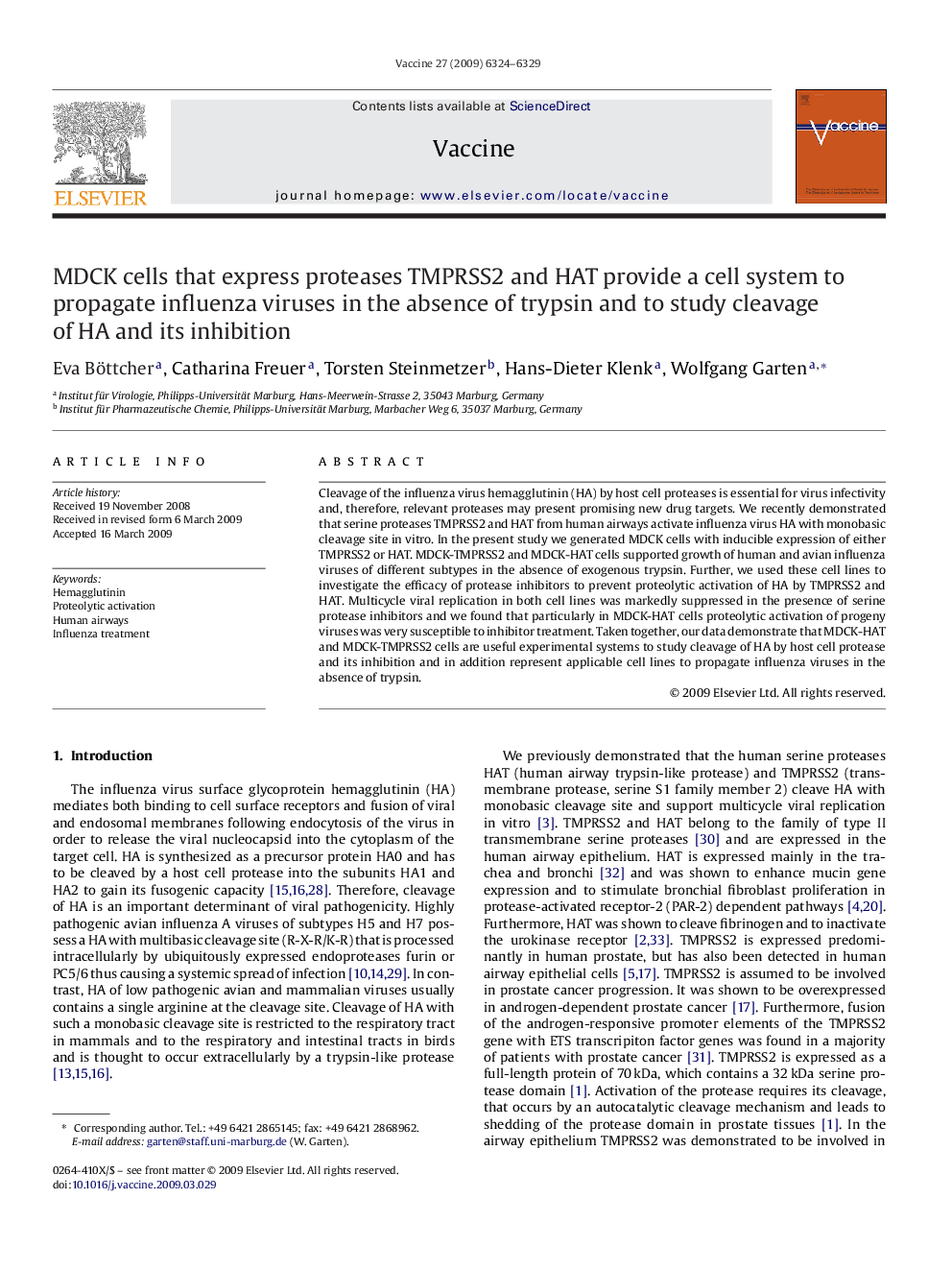| Article ID | Journal | Published Year | Pages | File Type |
|---|---|---|---|---|
| 10970018 | Vaccine | 2009 | 6 Pages |
Abstract
Cleavage of the influenza virus hemagglutinin (HA) by host cell proteases is essential for virus infectivity and, therefore, relevant proteases may present promising new drug targets. We recently demonstrated that serine proteases TMPRSS2 and HAT from human airways activate influenza virus HA with monobasic cleavage site in vitro. In the present study we generated MDCK cells with inducible expression of either TMPRSS2 or HAT. MDCK-TMPRSS2 and MDCK-HAT cells supported growth of human and avian influenza viruses of different subtypes in the absence of exogenous trypsin. Further, we used these cell lines to investigate the efficacy of protease inhibitors to prevent proteolytic activation of HA by TMPRSS2 and HAT. Multicycle viral replication in both cell lines was markedly suppressed in the presence of serine protease inhibitors and we found that particularly in MDCK-HAT cells proteolytic activation of progeny viruses was very susceptible to inhibitor treatment. Taken together, our data demonstrate that MDCK-HAT and MDCK-TMPRSS2 cells are useful experimental systems to study cleavage of HA by host cell protease and its inhibition and in addition represent applicable cell lines to propagate influenza viruses in the absence of trypsin.
Related Topics
Life Sciences
Immunology and Microbiology
Immunology
Authors
Eva Böttcher, Catharina Freuer, Torsten Steinmetzer, Hans-Dieter Klenk, Wolfgang Garten,
